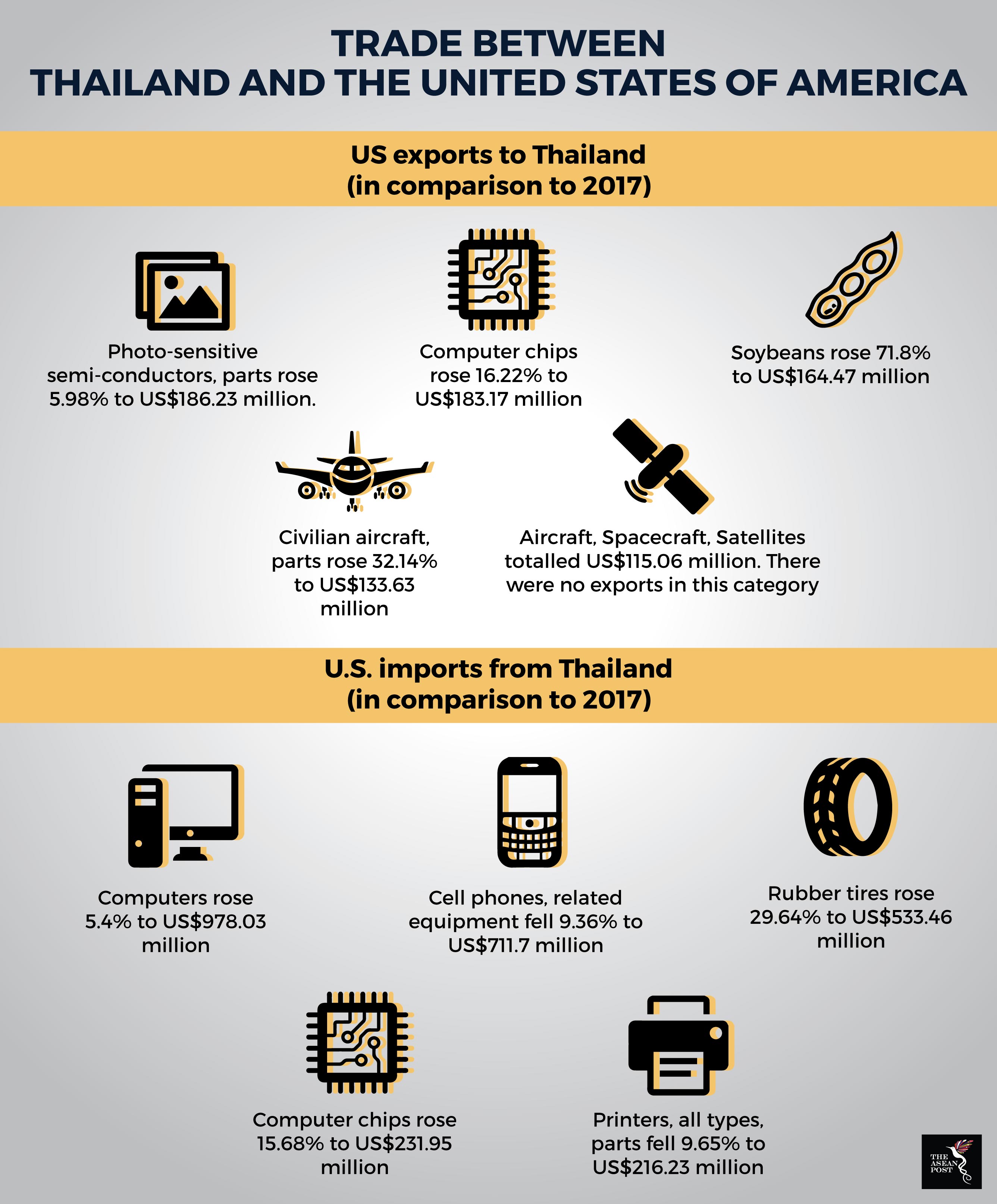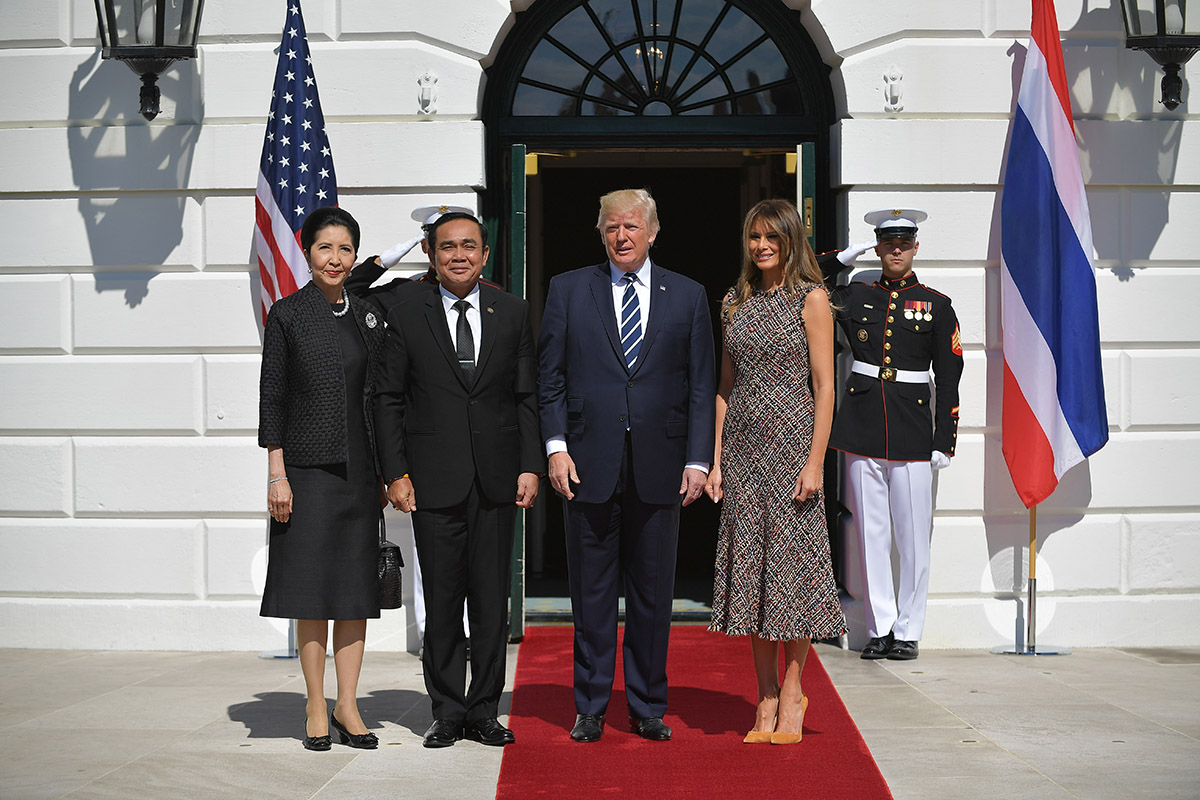Thailand is the only country in Southeast Asia to have never been colonised. It is perhaps a testament to the strength and resilience of the country in doing away with any foreign interference on its shores. However, Thailand has had interactions with colonial powers before, as can be seen when the United States of America (US) established relations with then Siam in 1818. The Treaty of Amity and Commerce, which formalised diplomatic relations, was also signed by both countries in 1833.
In April this year, Thailand’s Defence Minister, Gen. Prawit Wongsuwon met with US Defence Secretary, Gen. Jim Mattis to discuss about security cooperation. This collaboration deals with the strengthening of cyber and marine security that is matched with a concerted effort to combat terrorism and transnational crimes. The visit took place after Gen. Prawit was sent an invitation by the US Department of Defence. The meeting reinforced strong bilateral relations between both countries, marking 200 years of trust and mutual cooperation. The two countries have also fought shoulder-to-shoulder in every major conflict since World War II.
Based on the 2012 Joint Vision Statement for the Thai-US Defence Alliance, the US supports the Royal Thai Armed Forces’ leadership role in Southeast Asia, including its role in peacekeeping missions, maritime security operations, as well as humanitarian assistance/disaster relief efforts. The unfortunate events of the 2004 Indian Ocean Tsunami and Cyclone Nargis in 2008 proved to be a platform for closer cooperation between both countries in providing timely, and life-saving assistance to those in need.
In dealing with multifaceted challenges, the Thai-US alliance fosters regional and multilateral security cooperation by means of initiatives and exercises. This includes Cobra Gold; the world’s largest multilateral military exercise which is also the premier military training event in Asia. Participants from 29 countries working together in organising military, logistical, and humanitarian operations, convene in Thailand for the drills. Cobra Gold demonstrates the readiness and resolve of the US to work with its partners in the Asia-Pacific region, specifically Thailand.
Economic links
A strong strategic partnership is not the only highlight of the bond between Thailand and the US. Deeper economic links are the connective tissues that bind these two allies together. Under the auspices of the 2002 Bilateral Trade and Investment Framework Agreement (TIFA), Thailand and the US meet regularly to discuss methods and mechanisms to expand trade besides addressing outstanding concerns, including issues that relate to intellectual property, customs, and agriculture. According to the Office of the United States Trade Representative, the US is Thailand’s third largest source of imports, after Asian giants; China and Japan.

Source: WorldCity Trade Numbers
The US Department of State also reported that two-way trade between Bangkok and Washington totalled to more than US$37 billion, as of three years ago. Furthermore, US investments in Thailand amount to over US$11 billion. This figure is impressive when one considers the fact that there is no free trade agreement (FTA) between the two nations. Thailand and the US had initiated negotiations for an FTA back 2004. However, two years later, negotiations came to a standstill as a result of a military coup in the Land of Smiles.
The fact that the Trans-Pacific Partnership Agreement (TPPA) now shares a similar fate with the dinosaurs, both Thailand and the US have the desire and motivation to begin a template in constructing a bilateral trade agreement. This would be beneficial for both sides; the Trump administration delivers on its words to increase bilateral deals while the Thai government earns greater commitment from the US to boost its economy.
As a whole, most countries would be envious of the strong Thai-US relationship. However, both parties will have to remain grounded if they are to carry forth the mutual progress experienced thus far into the future. As for the US, building on the trust that it has with Thailand, a close ally in Southeast Asia, is seen as a wise move given the uncertain global climate.
